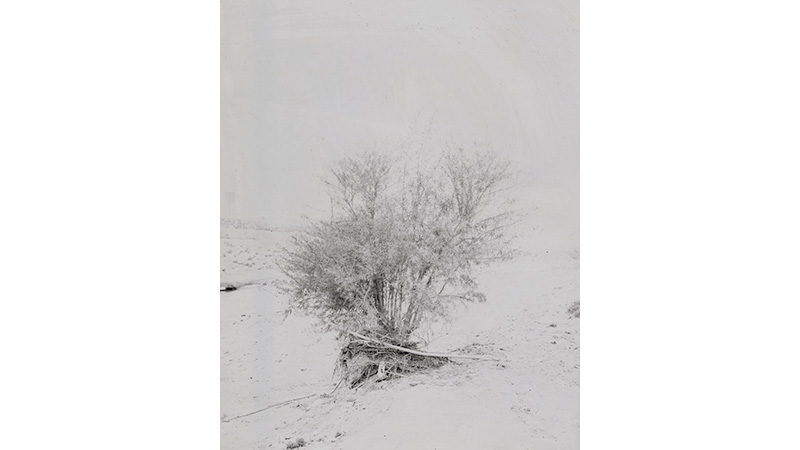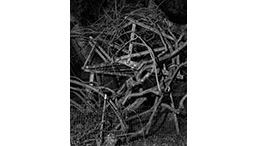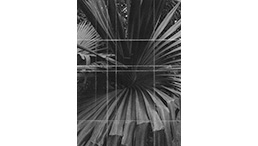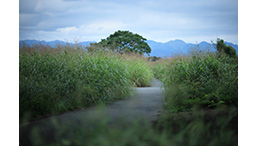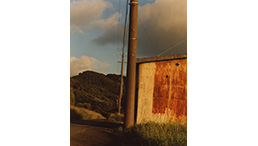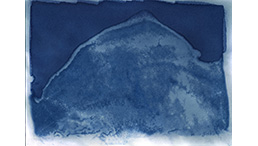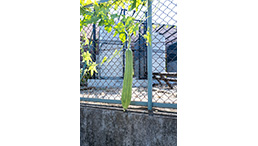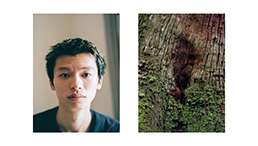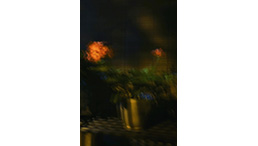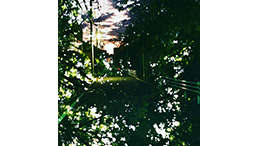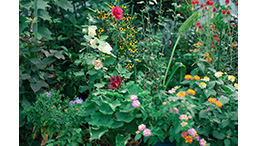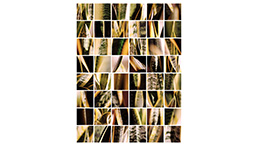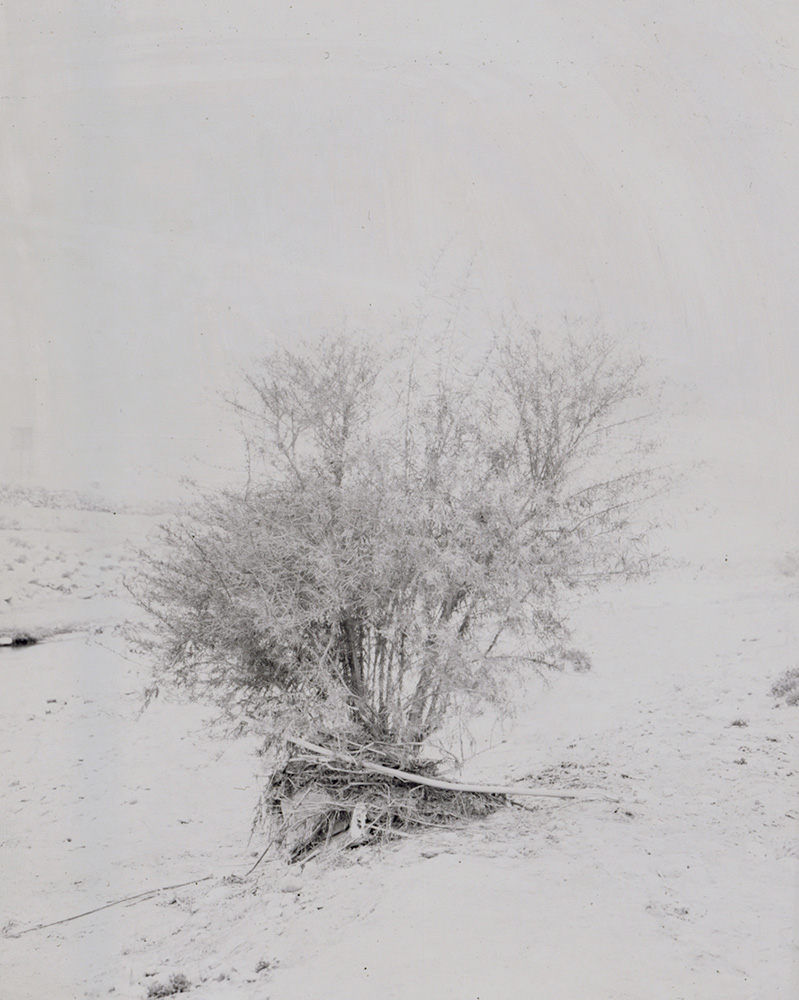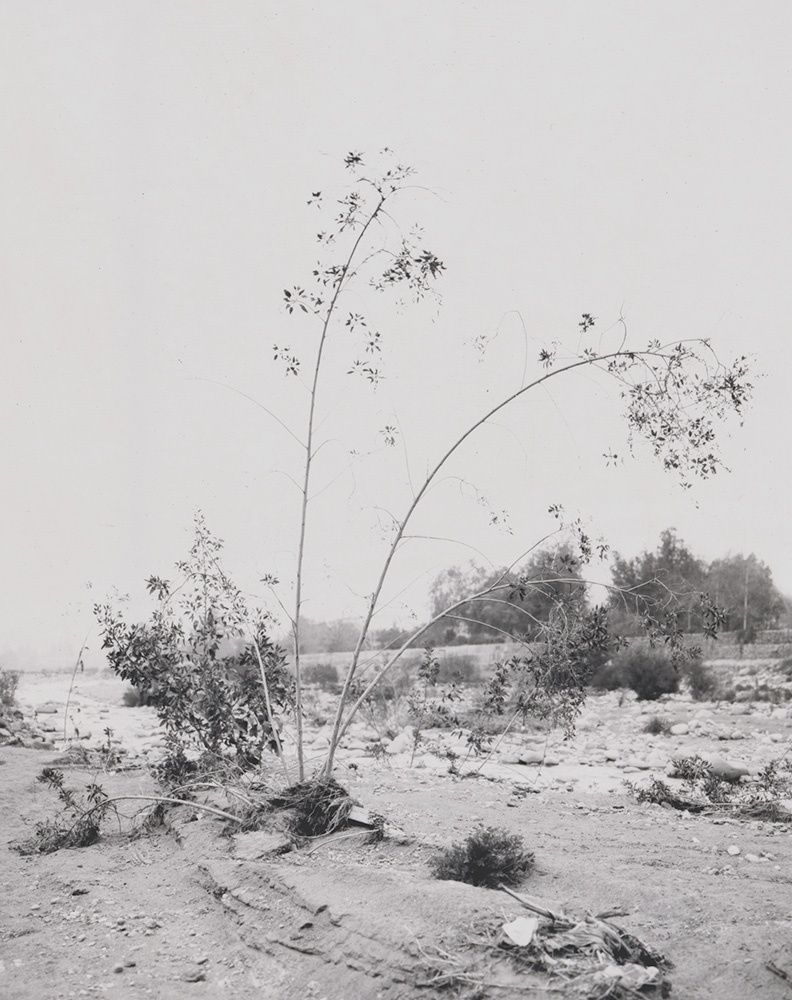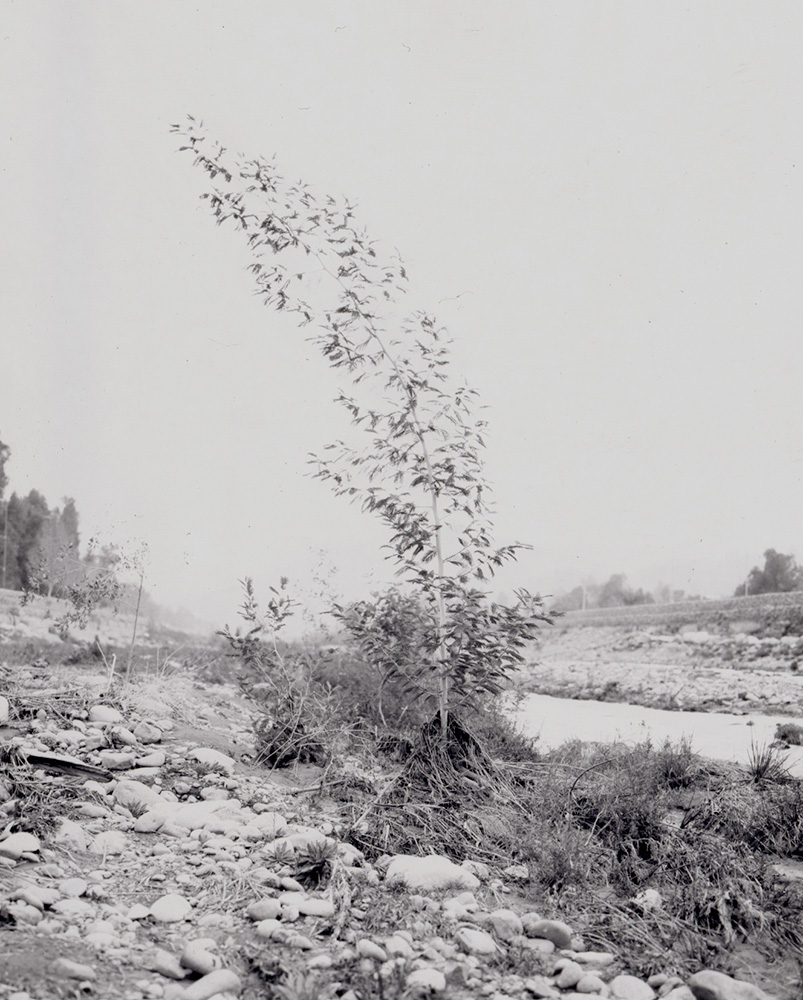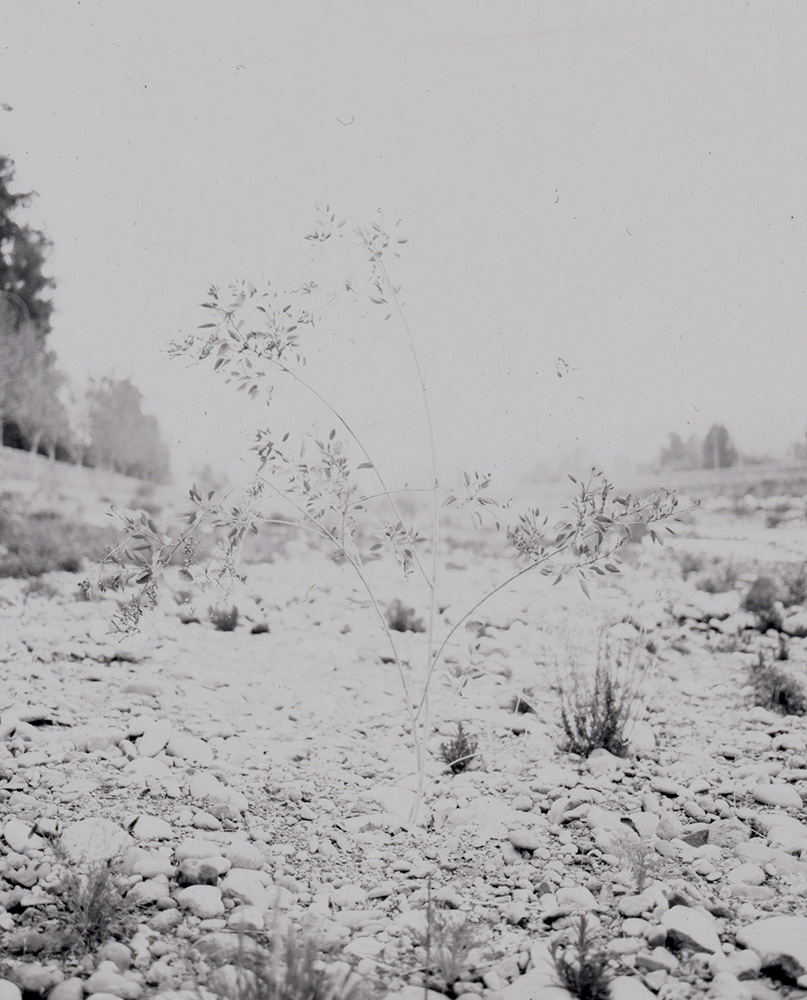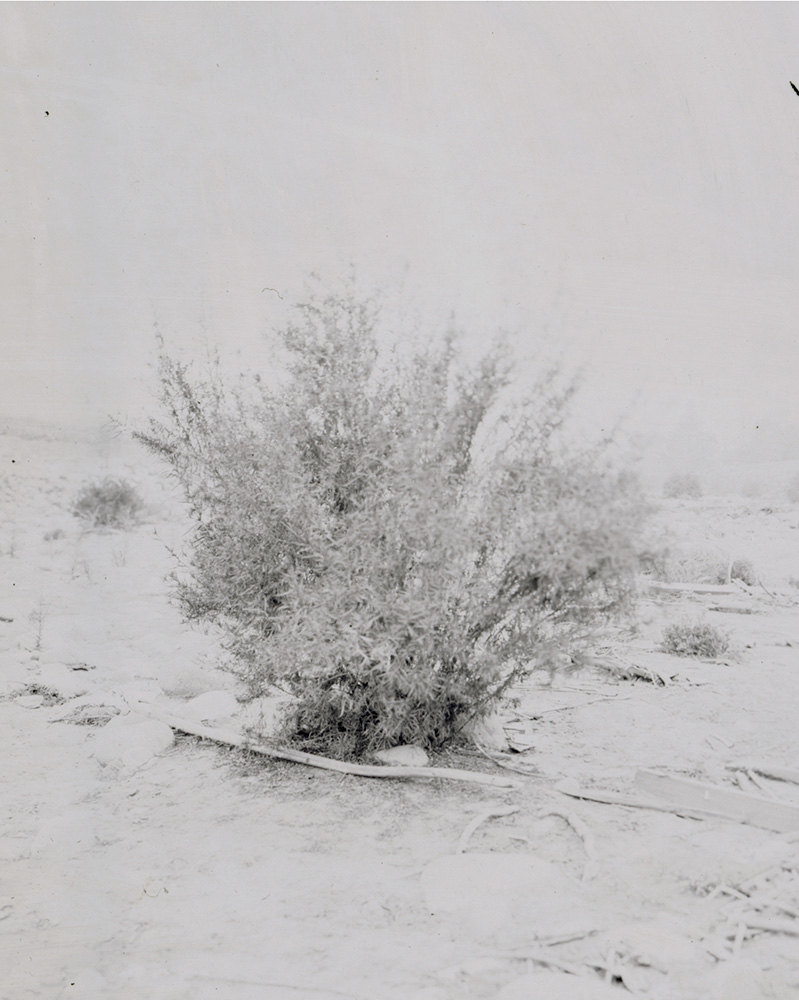THEME #46Winners2023AUG
PLANT LIFE
GRAND PRIX
Statement
Mapocho River
During my first pandemic outings I started photographing the mapocho river in santiago de chile. It was just a few blocks from my house and offered a vast space away from people and filled with and array of natural stimulus. At the time I had no access to film, so I used expired photo paper on my large format camera. In this case plants are resilient survivors of a diminishing river, inhabitants of this enigmatic landscape in the middle of the city.
Profile
Sebastian Mejia
Born Lima, Peru 1982
Bachelor Degree in Photography from the School of Visual Arts in NY
MFA from Universidad Finis Terrae in Santiago de Chile.
Photographer and teacher based in Santiago de Chile. Sebastian Mejia´s photographic work focuses on primitive life that commonly goes unnoticed in the modern metropolis. His work has been showcased in numerous exhibitions in Chile and abroad including Nous les Arbres at the Fondation Cartier (2019) in Paris, Urban Impulses at the Photographers Gallery in London (2019) and Quasi Oasis at the Museum of Contemporary Art in Santiago(2013).
Jury selection
After spending some time with all of the interesting applicants work in this years IMA Next Award, overall I was really pleased to see some great work and in some cases not such great work in terms of pictures or execution, but sensitive, intelligent and mostly sincere and heartfelt. I kept gravitating to some of the series that remained in my mind and looked several times at the entries.
Though I have to say it was very hard to choose a “Grand Prix”. One body of work that even without supporting words kept finding a way back into my mind. I liked everything about it, though extremely delicate and subtle, it also had a great weight. A series that in some ways was like a gentle breeze, but in another solid like a stone. The series I have selected is titled Mopocho River by Sebastian Mejia.
Plant Life being the theme of this award. I like this work for many reasons, and I will attempt with words to share why. The subject plant life in this case as “resilient survivors of a diminishing river” really struck a chord.
A series of black and white gentle, though descriptive studies of plants latching not only onto life, but to a sun scorched riverbed or riverbank. Descriptive, gentle recordings, a milky low highlight holds the solid cloudless skies together. Earth, dust, sand and rocks at the foot and a plant presented with all its limbs, delicate traces of leaves, at times static and other times recorded in motion with occasional images also depicting plant roots that had surfaced.
These to me are delicate though left a strong impression. They just are, that’s it without forcing a point. But as descriptive and straight as they are, there is a kind of warmth, poetic nature to these images too presented by the plants themselves, of course with the help from Sebastian Mejia.
I am often drawn to photography’s simple strength of description as well as conveying feeling or emotion and for me this series does these things and more. These simple studies will endure even if all the plants featured sadly will not.
They also feel they are made without ego as if the author orchestrated and enabled them before handing over what came through in the images to the chosen subjects themselves.
Lastly, I should mention another aspect to this work. Though as a side note and not in any way to elevate the work, which it does not need. As Sebastian explained in his brief description of the photo study. I like that this work was born out of curiosity, sincerity, and most of all will. I always appreciate that things are seen through regardless of the outcome. That Sebastian’s will to make this work feels like that the subject carried him as much as he pushed it along. Though as effortless as the images feel, I also understand the energy behind these images and like to think of the walks that Sebastian took. His decisions on what plant he noticed and considered, and his subconscious instinctual choices made too as if listening to the subject as well as observing it.
The thought of the dried up river that backs on to the city and weaves through Santiago, Chile. In these extreme times we are now living, with droughts here and floods there, these images are also a reminder of where we are in time, the images are in some ways full of hope as these resilient plants show life in extreme times oblivious to everything, though clearly effected and to the global pandemic present whilst the images were made.
I imagine Sebastian’s work was made during the first outbreak of Covid, which for some was also a time when nature really started to be seen and celebrated, with many turning towards plant life. With that in mind, this seems to add another layer of meaning to these humble plants coupled with global living and movement restrictions during this time, hindered even obtaining film for his camera, Sebastian’s inner will was greater than the obstacles presented during this time hence he used light sensitive paper to make these images rather than film that in turn allowed the images to be born.
This to me adds something, as I admire that people find a way and their will is greater than the obstacles life presents. What I am describing is not necessarily visible or even relevant but perhaps is a hidden element that is subtly encapsulated within the images.
The images have soul and I trust them.
Of course, there is a temptation to look at the history of the medium and what has come before and to join dots towards a work like this. But I do not wish to do that, I see this work as standalone, just as the plants themselves are.
Congratulations Sebastian on making such a work and being selected as the winner of this award / competition.
Links
Instagram: @sebastianmejiaphoto
